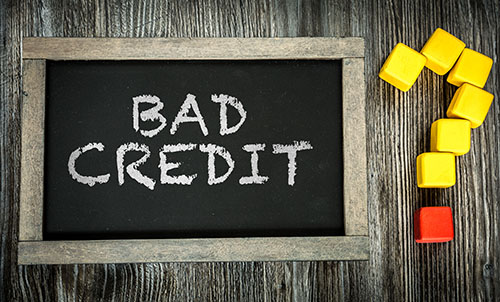Worried About Mortgage Rates Going Up? 3 Steps to Prepare Yourself Financially
 Mortgage rates have been at record lows for quite some time, making it easy for new homebuyers to finance their dream homes. But what comes down will eventually go back up, and with the world economy expected to rebound in 2016, we’re about to start seeing more expensive mortgages.
Mortgage rates have been at record lows for quite some time, making it easy for new homebuyers to finance their dream homes. But what comes down will eventually go back up, and with the world economy expected to rebound in 2016, we’re about to start seeing more expensive mortgages.
So what can you do to prepare yourself before mortgage rates start to rise? Here are three strategies that will keep you ahead of the game.
Start Saving More Money Now
If you have a variable rate mortgage, you’ve benefitted from great interest rates that this world won’t see again for quite some time. Hopefully, you’ve taken advantage of this low-interest period to save up some cash. If so, you’re going to be in a great position for when interest rates rise – and if not, you’ll want to start saving as much as you can now to ensure you can weather the storm.
It’s far easier to save money now, with interest rates low, than it will be when your mortgage payment starts to rise. So start squirreling away as much of your paycheck as you can.
Pay Down as Much of Your Principal as Possible
Another great way to prepare for the rise in interest rates is to pay down your principal amount. The total amount of interest you’ll pay goes up when rates go up, but by paying down your principal, you can take a big bite out of your debt before it has a chance to snowball. So pay down as much of your principal as you can afford – it’s easier to pay down interest on a smaller principal amount.
Switch to a Fixed Rate Mortgage
One of the best ways to take advantage of low rates and ensure you get a great deal is to switch your floating rate mortgage to a fixed rate mortgage. Locking in your low interest rate with a fixed rate mortgage means you’ll pay less interest over the term of the loan, but it also means you’ll only have a set amount of time to pay your mortgage in full. If you’re in a position to predict when you can pay back your mortgage, you’ll save a lot of money by locking in your low rate.
Mortgage rates haven’t been this low in a long time, and likely won’t be this low again for many years to come. That’s why, if you’re a homeowner, you’ll want to do everything you can to prepare for higher interest rates before they get here. Contact your trusted mortgage advisor to learn more about how to manage interest rates and make sure you have the right mortgage for your situation.

 Before an owner can market a property to buyers that want to use a FHA loan, he will want to familiarize himself with the FHA’s standards. FHA won’t insure loans on just any property.
Before an owner can market a property to buyers that want to use a FHA loan, he will want to familiarize himself with the FHA’s standards. FHA won’t insure loans on just any property. If you have a mortgage, you’re probably looking for the best option to pay it off. Monthly mortgage payments are an easy-to-manage way to pay for your house – in fact, they’re the most common form of mortgage payment but now, many homeowners are discovering that biweekly payments offer them better results.
If you have a mortgage, you’re probably looking for the best option to pay it off. Monthly mortgage payments are an easy-to-manage way to pay for your house – in fact, they’re the most common form of mortgage payment but now, many homeowners are discovering that biweekly payments offer them better results. Title insurance is one of the few types of protection policies available to homebuyers and one that is often overlooked because of its optional nature.
Title insurance is one of the few types of protection policies available to homebuyers and one that is often overlooked because of its optional nature. Obtaining a mortgage can be quite a complicated process even without the financial hurdles, but if your spouse’s credit has experienced a number of difficulties, acquiring a mortgage can be even more of a burden. If you’re concerned about what bad credit will mean for your mortgage and are weighing your options, here are some reasons why it might be important to use a co-signer for your application.
Obtaining a mortgage can be quite a complicated process even without the financial hurdles, but if your spouse’s credit has experienced a number of difficulties, acquiring a mortgage can be even more of a burden. If you’re concerned about what bad credit will mean for your mortgage and are weighing your options, here are some reasons why it might be important to use a co-signer for your application.